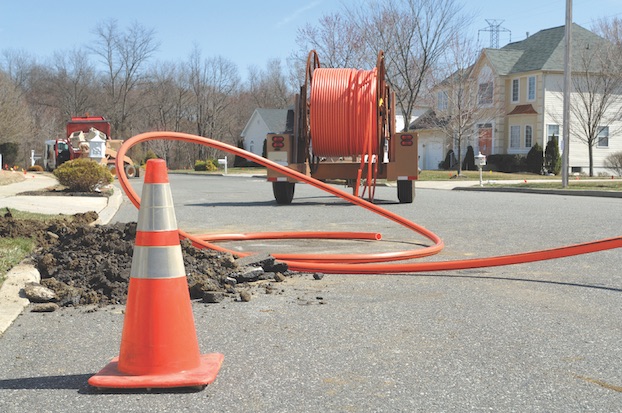State trying to expand broadband without doing damage
Published 10:29 am Wednesday, August 14, 2024

- (Metro Creative Services)
Broadband, high-speed internet companies are using federal tax dollars to expand access across the state, often boring into municipal sewer, water and even electrical utility “lines” in the process. Now there is more federal money on the way, more companies who want a piece of it and a smaller window to get the work done. While it is impossible to pinpoint every utility line in the state and ensure it is not hit, Louisiana ACT 632 could make crossing the digital divide a little smoother.
“It’s hard to know where some of those lines are buried, because they were buried so long ago,” admits Damon Hardesty, Westlake Public Works director.
He was recently appointed to his role, but overall, he said the city’s relationship with two broadband company contractors has been mutually supportive.
Trending
In another area of the state, the story is different. One contractor tore up sidewalk sections in a well-traveled, highly visible area, and left it that way. In Minden, subcontractors who hit utilities did not report it to the city, and some of the equipment operators were not trained to operate the equipment they used, nor did they have identification indicating which broadband and utility company they were subbing for — and they didn’t know.
In Sulphur, contractors pay a deposit before they get to work and 811 is called out to establish where the buried lines are. When contractors strike anything that needs to be repaired, they can draw off that deposit, explained Mayor Mike Danahay.
That level of accountability is exactly what’s behind the new Louisiana Act 632, which requires companies with GUMBO grants to report to the state all known instances of damages to existing utilities that occur during broadband construction and give local governments 30 days notice before beginning construction.
Better communication is going to become essential during the second round of GUMBO grant funding on its way.
GUMBO stands for Granting Unserved Municipalities Broadband Opportunities. It’s what Louisiana dubs its grant program for broadband infrastructure projects in areas that do not have internet access at speeds of 25/3 Mbps. The first round of funding was from the American Rescue Plan dollars.
The state needs to spend that money, $176 million dollars, by 2026. So far, $131 million of those dollars are obligated, Veneeth Iyengar told the Louisiana House Commerce Committee on Monday. Iyengar is executive director of ConnectLA, which is coordinating efforts among federal, state and local leaders in allocating GUMBO grants.
Trending
“Over the last six months, we’ve gone from nearly 58 to 59 percent actively under construction to 88 percent,” he said. “ISPs (Internet Service Providers) are meeting deadlines we’d like for them to meet.”
GUMBO 2.0, the second round of funding will make $1.355 billion dollars available to 33 ISPs, more than twice as many as before, and those companies will need to build as quickly as possible Veneeth Iyengar told the Louisiana House Commerce Committee on Monday. Iyengar will identify provisional awards the first or second week of November, he said. If a company does not bid for a project area, we have the authority to talk to companies directly to find out what it will take to service and provide fiber to those locations, waiving the match or doing certain things to incentivise the business.
Projects could begin as quickly as January or February of 2024. The second round of federal funding is money from the American Infrastructure Act. Want to know if your address is in the plan for high-speed internet accessibility? Go to la.connect.gov to find out.





